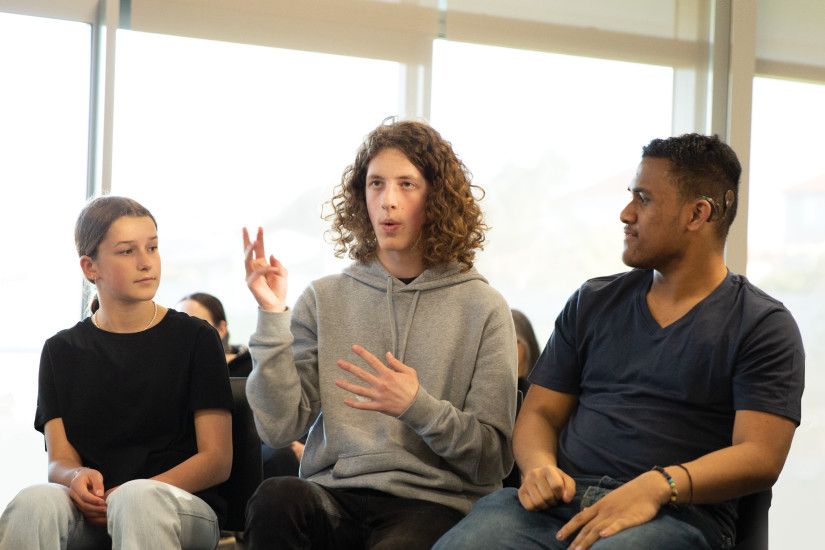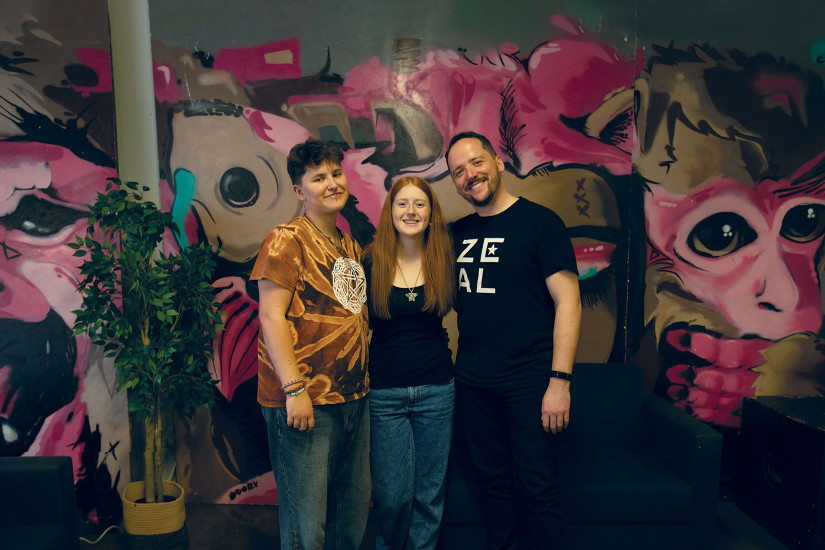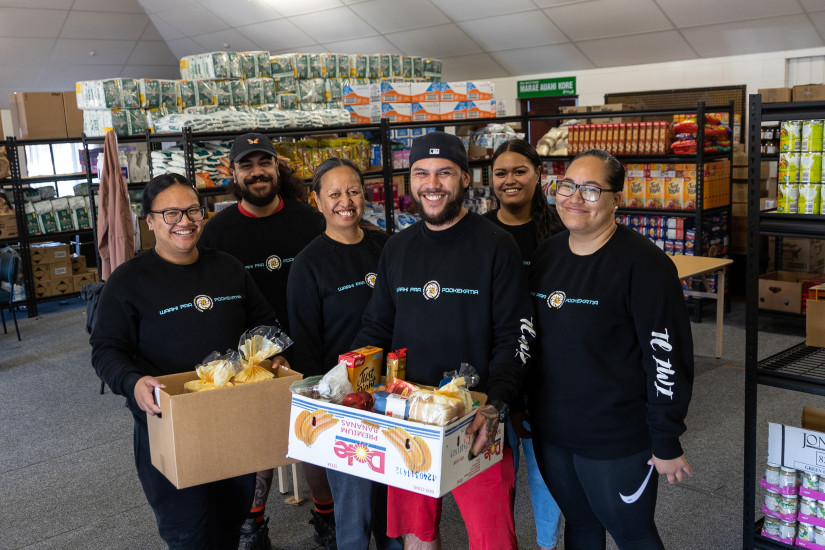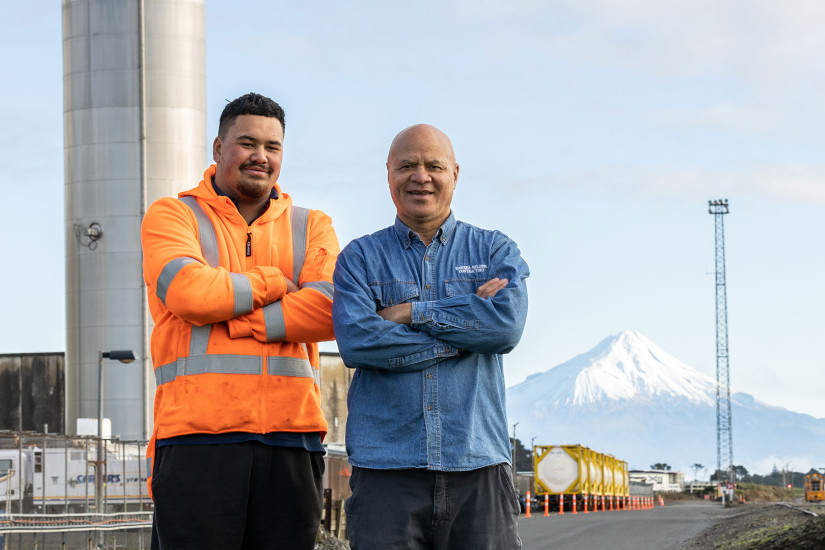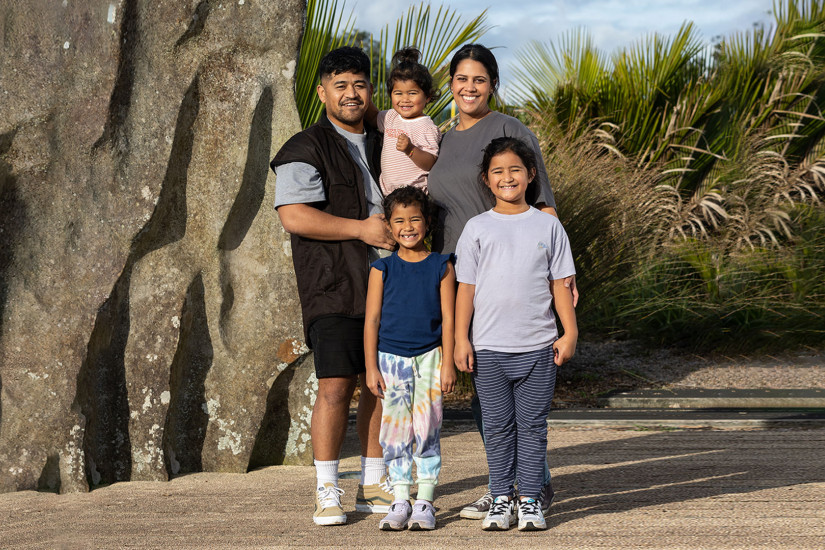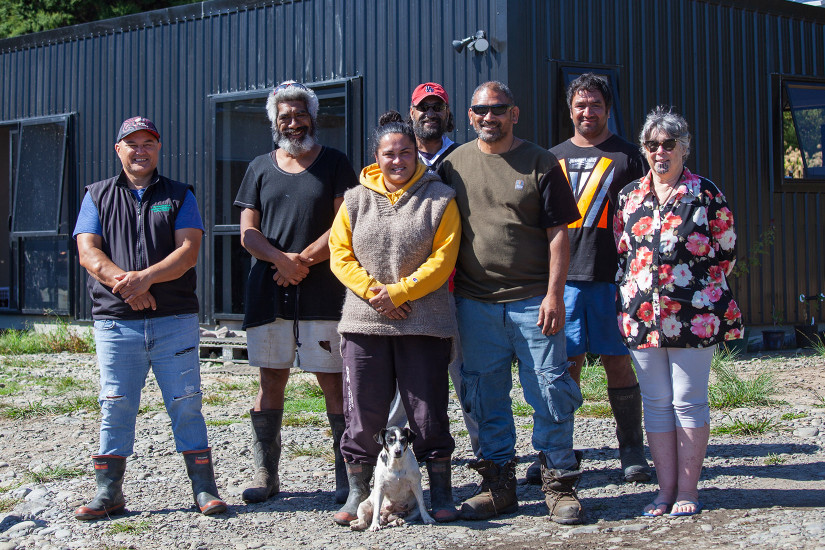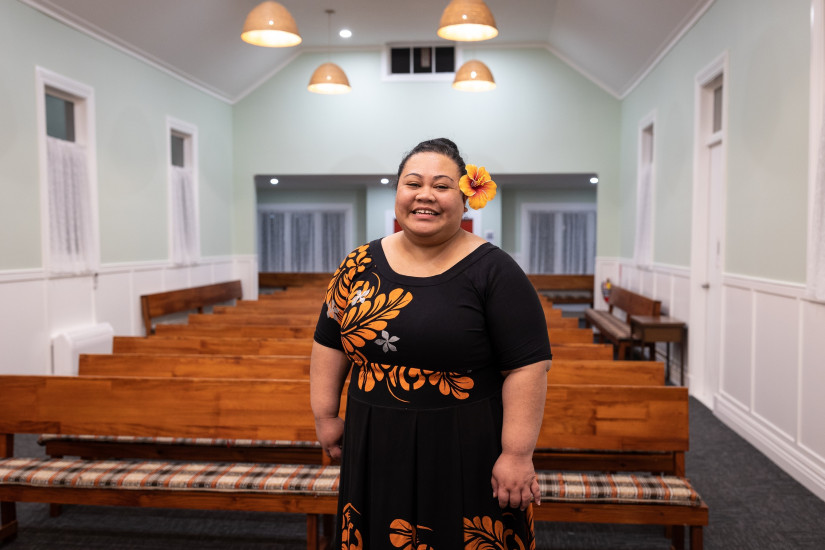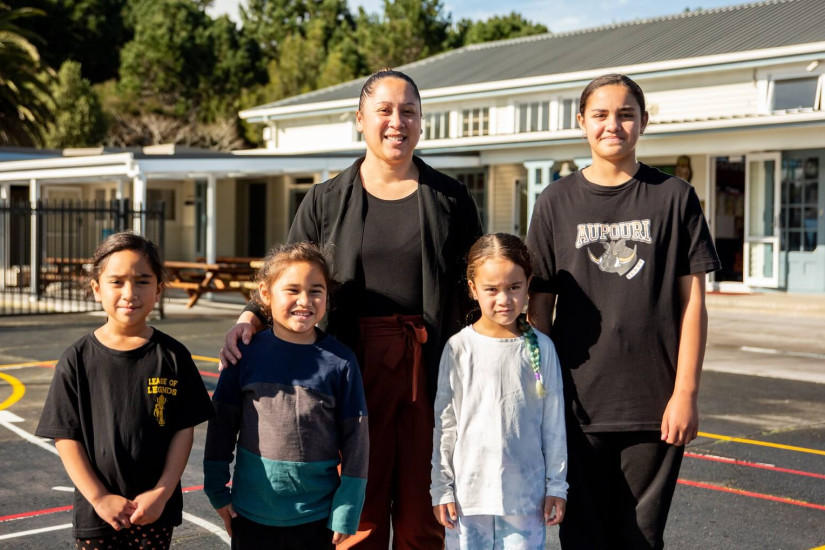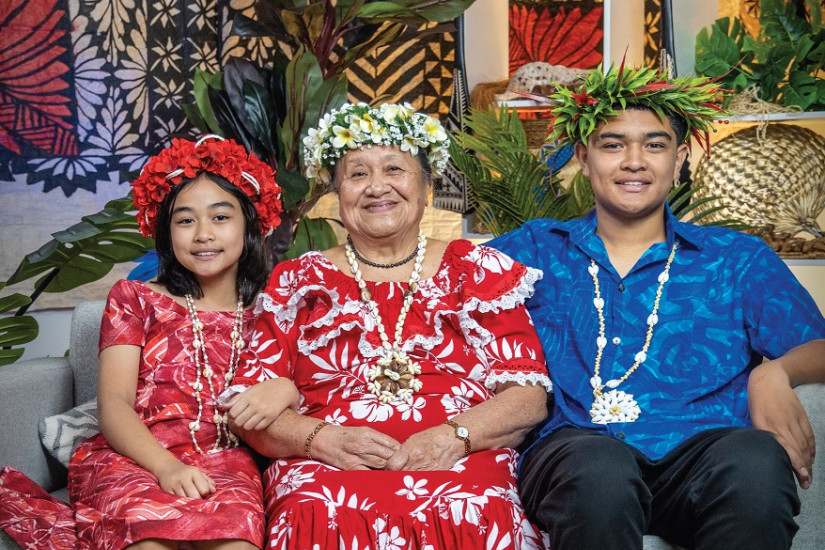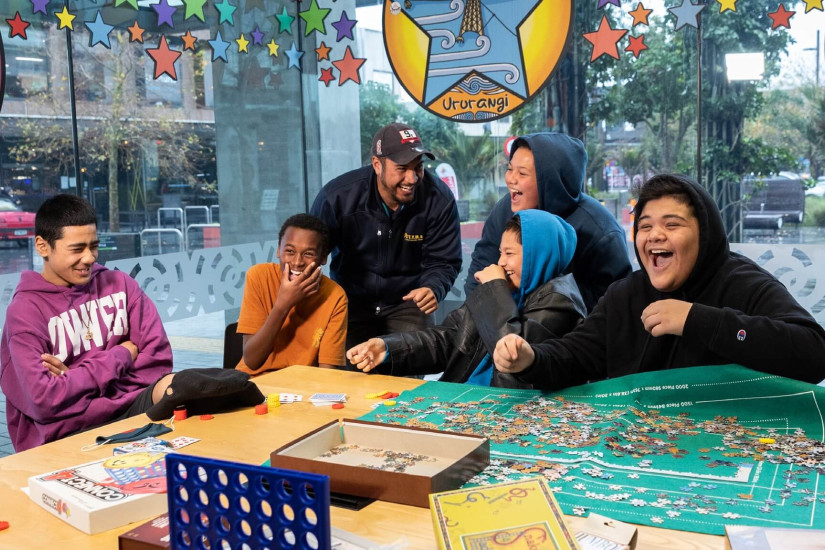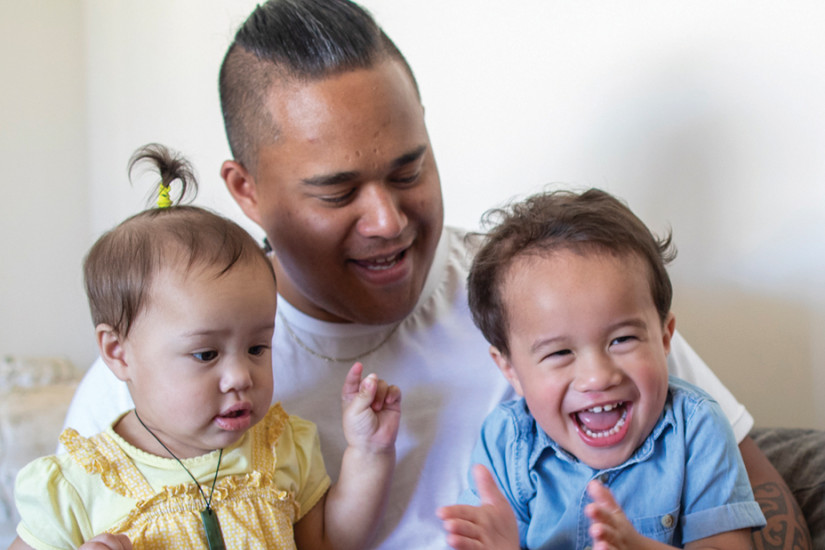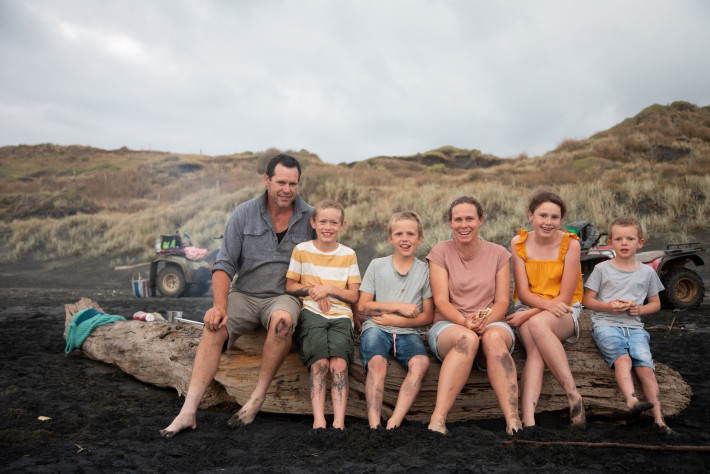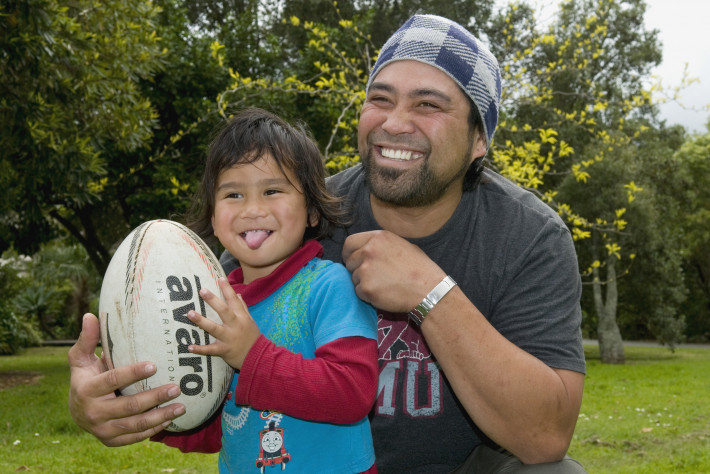Why the census matters He aha e kīa ai te tatauranga he kaupapa nui
Hear the stories of communities around Aotearoa New Zealand who benefit from the kind of data that is gathered in the census.
Why the census matters He aha e kīa ai te tatauranga he kaupapa nui
Hear the stories of communities around Aotearoa New Zealand who benefit from the kind of data that is gathered in the census.
Data helps people access and use New Zealand Sign Language
Census data supports the New Zealand Sign Language (NZSL) Board’s mission to promote NZSL as an official language and grow the community of people who use it.
I hope that the NZSL Youth Group continues to bring youth together to build their confidence in sign language and to build a wider community of communicators.
Tina Carter
Wellington Deaf Youth Group
Data helps Rainbow youth be seen and supported
When Rainbow communities are visible, they can represent themselves. InsideOUT and Zeal Wellington use data to connect Rainbow youth with their communities, in a supportive space where they can be their full selves.
The more data we have about our communities, the more positive change we can make.
Neo Kenny
InsideOUT
Data helps support community wellbeing Hei aawhina te raraunga i te toiora hapori
Census information showed that 3500 houses and 11,000 whaanau in the Raahui Pookeka needed support. That motivated Tiana Matatahi and her team to set up Pookekatia Te Iwi to get support to the community.
This census information is for iwi, hapuu, and whaanau. It belongs to everybody.
Kyly Anne Callaghan
Pookekatia Te Iwi
Data helps connect rangatahi to job opportunities Ka āwhina te raraunga i te rangatahi kia hono ki ngā whāinga wāhi ki te mahi
James Parker from Hāwera Welding Contractors uses census information to connect rangatahi with their apprenticeships, giving them a trade, and a new direction in life.
The positive differences I’ve seen in my guys is that some of them have bought houses, they’ve turned up to work and they know the value of earning the money so they can pay for stuff. That’s a big difference in someone’s life.
James Parker
Managing Director, Hāwera Welding Contractors
Data gives us power Hei homai hiko te raraunga ki a mātou
Census data helped Ezra Hirawani, Ben Armstrong and Nau Mai Rā supply affordable power to whānau across Aotearoa New Zealand.
If we have good specific data about what whānau are going through, then we can have bespoke solutions and make those kind of decisions to be able to deliver the impact for that problem.
Ezra Hirawani
Nau Mai Rā
Data protects and preserves our languages Hei tautiaki tēnei mea te raraunga i ō tātou reo
Census information showed speakers of Niue in New Zealand were declining. This data helped Mele Nemaia and the Vagahau Niue Trust to support the opening of the first bilingual teaching unit at Favona School. Here, more children learn to speak Niue and our culture is preserved.
The data collected gave us an opportunity for our language to grow and let us move forward.
Mele Fakatali Tiakia Nemaia
Vagahau Niue Trust
Data helps Te Tairāwhiti community build more houses Nā ngā raraunga i āwhina te hapori o Te Tairāwhiti kia hangaia ētahi atu whare
Thanks to data about the housing and health status of people in Te Tairāwhiti, Willie Te Aho and Toitū Tairāwhiti Housing Limited were able to work with government to get 51 new homes built in the community. Another 150 are planned.
Data is important. Data underpins the needs of our whānau, and when we understand the needs, it's easier for us to plan on how we deliver on those needs.
Willie Te Aho
Toitū Tairāwhiti Housing Limited
Data helps our communities get the help they need
Angelina Mose Tuiali'i from THINK Hauora uses census information to get an accurate picture of Pacific people's health needs in Horowhenua and Manawatū.
The more we know, the more we can do. Census is how we find that out.
Angelina Mose Tuiali'i
THINK Hauora
Data helps Asian Family Services support communities throughout Aotearoa New Zealand Hei āwhina te raraunga i a Asian Family Services ki te tautoko i ngā hapori puta noa i Aotearoa
Using 2018 Census data, Asian Family Services has been able to expand its services to serve more Asian communities across Aotearoa New Zealand.
Census data is helping us tailor and target our services to better support Asian people in New Zealand, and advocate to local authorities and central government on issues and policies impacting Asian people and communities.
Ivan Yeo
Deputy Director and Public Health Lead, Asian Family Services
Data helps meet our community health needs Hei āwhina te raraunga i ō tātou hiahia hauora ā-hapori
Census information showed a large number of people had moved into the community of Te Kao, in Northland. This information helped Māori health provider Whakawhiti Ora Pai understand the changing health needs of this growing community in many important ways.
We couldn’t do what we do without census data. It’s important for our people, our organisation, it’s important for services.
Charlotte Tahitahi-Matiu
Registered Social Worker, Whakawhiti Ora Pai
Data helps Cook Islands Māori thrive into the next generation
Census data helped the Cook Islands Development Agency New Zealand (CIDANZ) open a learning centre focused on ensuring the Cook Islands Māori language (te reo Māori Kūki 'Āirani) thrives for generations to come.
"We use data to inform ourselves of our community's needs and the direction we should take to address those needs. We use it to build programmes and secure the funding, support and resources we need to better serve the needs of our families."
Rouruina Emil'e-Brown
CEO, Cook Islands Development Agency New Zealand
Data helps rangatahi reach their potential Mā te raraunga e āwhina te rangatahi kia eke ki tō rātou tino teitei
Tuilaepa Youth Mentoring Services relies on census information to understand the situation of the rangatahi in its community who need help to reach their potential. With that understanding, they can identify the kinds of support rangatahi need.
Census information gives you a voice, which gives you visibility.
Dale Rasmussen
General Manager, Tuilaepa Youth Mentoring Service
Data helps Whānau Āwhina Plunket support children and their families Ka āwhinatia a Whānau Āwhina Plunket e ngā raraunga kia tautokona ngā tamariki me ō rātou whānau
Whānau Āwhina Plunket (Plunket) is a charity and New Zealand’s largest support service for the health and wellbeing of children under five and their families. Plunket uses census data to help source funding for its free nationwide support services.
Census data enables us to provide estimates for birth rates, deprivation levels, ethnicity, and population changes. We are often asked by funders to speak to these parameters so having a consistent data source is essential.
Lisa Hawes
Regional Grants Specialist, Whānau Āwhina Plunket
Data helps students honour their culture
Census data helped students at Mount Albert Grammar School present their case for funding so they could honour Chinese performance art.
With the help of census data, the school was able to understand more about the Chinese and Asian population, and some of the challenges the students face. Our tamariki, our children, are seen and helped by our data.
Eva Chen
Senior Advisor - Community Engagement, 2023 Census
Data helps everyone Mā ngā raraunga ka āwhinatia te katoa
- how mouldy and damp housing affect communities
- how many people do not have good access to clean water, schools, or hospitals
- how ethnic communities are growing and changing over time and what services they use and need.
Census information is used by government to plan health services such as hospitals, and by health and social service providers to make the case for health and social services where they are needed.
The government uses census data to understand how it will fund schools including teachers, and where schools will be.
Councils use census data to decide where to put community services such as libraries and parks.
Community groups and organisations use census information to support funding applications and make the case for improvements within their communities. Local clubs use census population counts to understand whether there are enough people to form sports teams.
Your church may use census data to make sure they have enough space for everyone in their congregation and to understand what services people in their communities might need.
Government and councils use census data to understand where public transport, roads, power, internet, water, and sewerage services are needed and how many people will be using them.
Councils and government use census data to understand whether homes in Aotearoa New Zealand are big enough for our families, where we need to build new housing, and what condition people’s homes are in.
Iwi may use census data to understand more about their people, where they are living, and how they are faring. This helps to plan for future generations, and may influence funding, services, or other initiatives.
Businesses use census data to make investment decisions and determine how they can meet demand for their products and services.
Researchers might use census data to understand things like:
